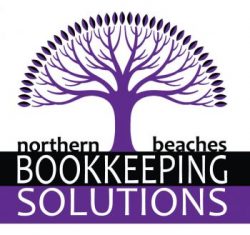The Real Cost of Late Invoice Payments (and How to Avoid Them)
Late invoice payments can have a serious impact on your business. From cash flow disruptions to increased administrative costs, overdue invoices can strain your finances and hinder growth. In this comprehensive guide, we explore the real cost of late payments and provide actionable strategies to prevent them.
What Are Late Invoice Payments?
A late invoice payment occurs when a client fails to pay their invoice by the agreed-upon due date. While occasional delays may seem harmless, consistent late payments can severely impact cash flow and business stability.
Why Do Clients Pay Late?
There are several reasons why clients delay payments, including:
- Cash flow issues on the client’s end
- Poorly defined payment terms
- Invoice disputes or discrepancies
- Administrative errors or oversight
- Lack of follow-up from the business
The True Cost of Late Invoice Payments
1. Cash Flow Disruptions
Late payments reduce the amount of cash available for daily operations. This can create a domino effect, making it difficult to cover expenses like rent, payroll, and supplier payments. Businesses with limited cash reserves may find themselves borrowing to stay afloat, leading to additional interest costs.
2. Increased Administrative Costs
Chasing late payments takes time and resources. Repeatedly contacting clients, sending reminders, and managing overdue accounts can significantly increase administrative workload and costs.
3. Lost Revenue and Bad Debts
Not all overdue invoices get paid. The longer an invoice remains unpaid, the less likely it is to be recovered. Unpaid invoices eventually become bad debts, resulting in a direct loss of revenue that impacts profitability.
4. Damaged Client Relationships
Following up on overdue payments can strain client relationships. Implementing clear payment terms and regular follow-ups can help maintain positive communication while encouraging timely payments.
5. Compromised Business Reputation
If your business is frequently chasing unpaid invoices, it can affect your reputation with suppliers and lenders. Late payments may signal financial instability, making it harder to negotiate favourable terms or secure financing.
Strategies to Prevent Late Payments
1. Implement Clear Payment Terms
Ensure that every invoice clearly states the payment terms, including the due date, payment methods, and any applicable late fees. Use simple, concise language to avoid confusion.
2. Send Invoices Promptly
The sooner you send an invoice, the sooner you’re likely to get paid. Send invoices immediately after the completion of a project or delivery of goods to minimise delays.
3. Offer Incentives for Early Payments
Encourage timely payments by offering small discounts for early payments. For example, a 5% discount for payments made within 7 days can motivate clients to pay sooner.
4. Charge Late Payment Fees
Implement a late payment policy that includes a fee for overdue invoices. This not only compensates for the inconvenience but also acts as a deterrent for late payments.
5. Automate Payment Reminders
Use accounting software to automate payment reminders for upcoming and overdue invoices. Automated reminders reduce the administrative burden while maintaining consistent communication with clients.
6. Require Upfront Deposits
For large projects or new clients, consider requesting a percentage of the total invoice as a deposit. This reduces the risk of non-payment and ensures some cash flow upfront.
7. Offer Multiple Payment Methods
Make it easy for clients to pay by offering multiple payment options, such as bank transfers, credit cards, or online payment platforms like PayPal and Stripe.
Frequently Asked Questions (FAQs)
How do late payments impact cash flow?
Late payments reduce the cash available to cover operational expenses, potentially leading to cash flow shortages. Consistent late payments can disrupt business operations and create financial stress.
Can I charge interest on overdue invoices?
Yes, you can charge interest on overdue invoices, but it must be clearly stated in your payment terms. Ensure clients are aware of the late payment policy before invoicing.
What should I do if a client refuses to pay?
If a client refuses to pay, follow up with a formal reminder and offer a payment plan if necessary. If the issue persists, consider engaging a collection agency or seeking legal advice.
Conclusion
Late invoice payments can have far-reaching consequences for small businesses, from cash flow disruptions to increased administrative costs. Implementing clear payment terms, automated reminders, and upfront deposits can significantly reduce the risk of late payments. For expert advice on managing accounts receivable and maintaining positive cash flow, contact Northern Beaches Bookkeeping Solutions.
